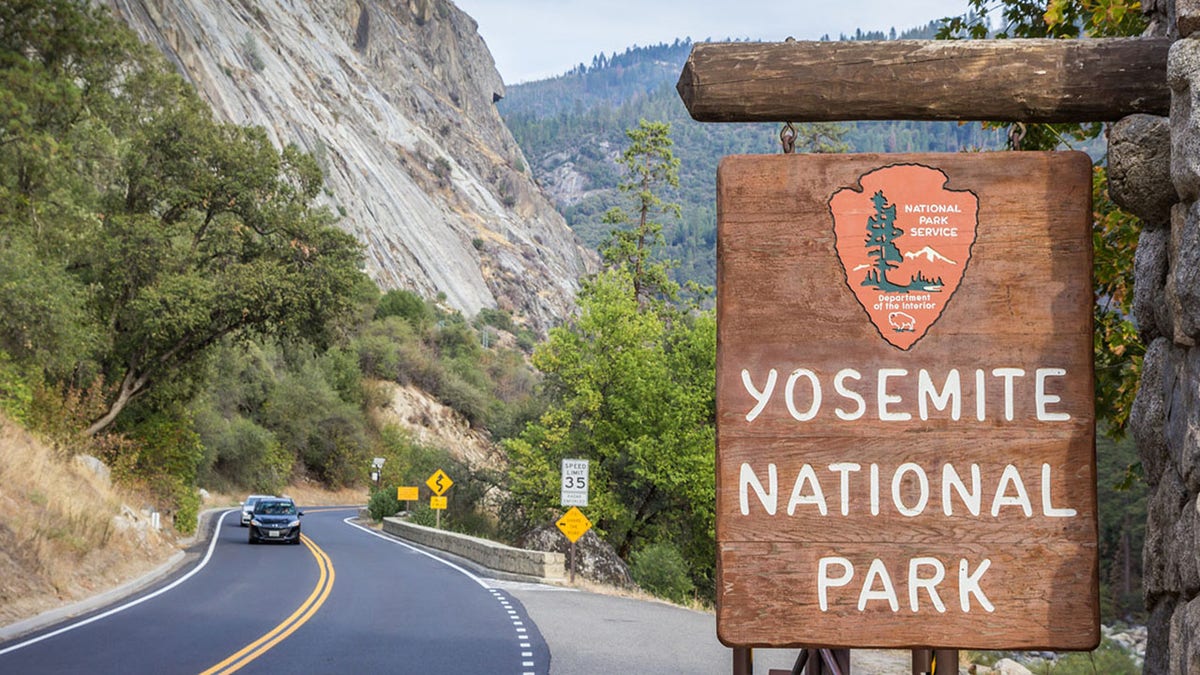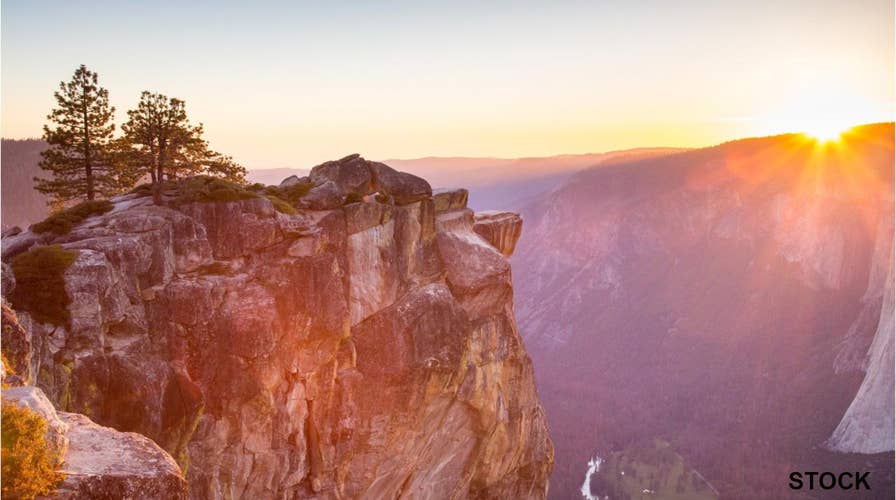Photographer captures stunning photo of mystery couple's proposal at Yosemite
A Michigan-based photographer captured a stunning photo of a mystery couple's proposal at Yosemite, but now is asking the internet for help in locating them.
No reservation? No problem.
Yosemite National Park will be eliminating its day-use reservation system in November, ending a capacity-management policy that took effect in June to promote social distancing amid the coronavirus pandemic.
Starting Nov. 1, visitors will no longer need to book a $35-per-vehicle pass to enter California’s largest national park, the National Park Service (NPS) announced this week.
ALASKA NATIONAL PARK'S FAT BEAR WEEK TOURNAMENT RETURNS TO CELEBRATE CHUBBIEST BROWN BEARS
“We would like to extend our gratitude to all park visitors and our local communities for their support of our modified operations this summer,” acting Superintendent Cicely Muldoon said in a statement. “With the health and safety of park visitors and employees guiding our decisions, we were thrilled to welcome thousands of visitors to Yosemite this summer.”
Under the day-use reservation system, the NPS capped Yosemite entry at 3,600 vehicles per, roughly a 50% reduction in capacity as compared to June 2019.

Under the day-use reservation system, the NPS capped Yosemite entry at 3,600 vehicles per, roughly a 50% reduction in capacity as compared to June 2019. (iStock)
Park rangers said these passes would sell out “within seconds,” according to KFSN. The day-use reservations will be required through the end of October, however.
FOLLOW US ON FACEBOOK FOR MORE FOX LIFESTYLE NEWS
Moving forward into the fall, officials feel that the reservation system will no longer be necessary, as park attendance drops when the temperatures do.
“Based on the recommendation of our local and federal public health officials, conditions have improved so we are able to maintain safe conditions while removing the day use reservation system,” NPS Yosemite spokeswoman Jamie Richards told The Mercury News.
There were reportedly no cases of COVID-19 linked to the national park this summer.
CLICK HERE FOR FOX NEWS' CONTINUING CORONAVIRUS COVERAGE
Yosemite reopened last Friday following a weeklong closure due to significant smoke impacts from California’s wildfires.
